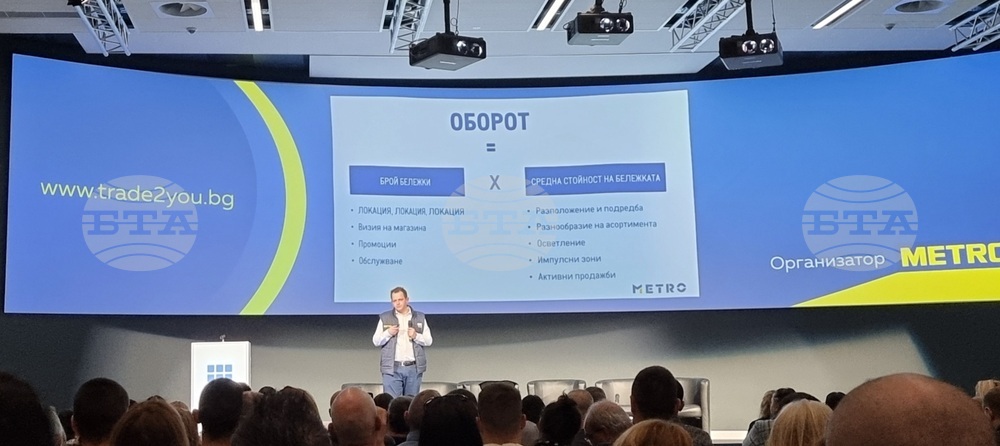site.bta10,000 Groceries Closed in 10 Years; “We Should Do Something About It”, Wholesaler Metro Says


The Bulgarian market in fast-moving consumer goods has grown over the last few years, but many independent retailers have failed to benefit from that. The reason is that customers prefer to shop in beautiful, “modern”, well-lit stores which run many sales promotions.
Independent retailers, typically family businesses, cannot cope on these points. They don’t dare to close even for a day as they fear losing more customers. About 10,000 grocery shops across Bulgaria have been closed in 10 years under the pressure of competition. The data was provided at the first meeting of independent retailers, organized by business-to-business wholesaler Metro Cash & Carry and held in Sofia on November 26. The company has a programme to help small locally-owned food stores enter the 21st century.
“Our shop is a family business. My kids have no private life, my husband and I have no private life either. We are in the shop all the time, except when sleeping, but the house is in the back,” Tanya Zemyarska from the southern town of Rakovski told Dnevnik.bg. Her retail outlet is under competitive pressure from international supermarket chains and other businesses like hers.
Data provided by Metro at the meeting shows that an average of 2.5 small local stores have gone out of business daily in the last 10 years. This is “an extremely disturbing trend, and we need to do something about it,” Metro’s Franchising Department Director Dimitar Vutkov said.
There is a light at the end of the tunnel, the data shows. The pace of independent-retailer closures has slowed in the last four years, although shutdowns of outlets with a floor area of 40 to 50 sq m are still frequent. The so-called “modern” retailers have expanded their presence in Bulgaria with the addition of 280 new shopping sites in 10 years.
The domestic market in fast-moving consumer goods has expanded and is currently worth BGN 15 billion, which is not essentially due to inflation; sales volumes have increased as well as nominal revenues. The market share of the average small independent retailer is BGN 2,300, which is not enough to make investments, pay wages and earn profits. In the third quarter of 2024, however, “traditional” trade grew faster than “modern” trade, which means that consumers are returning to small shops, according to experts.
Back in March, Metro announced plans to invest in the renovation of 50 small local shops which face difficulties in the battle for customers. Under a franchising project, the wholesaler has managed to open more My Store retail outlets than initially planned. They currently number 58, and the company’s ambition is to increase them to 200 in 2025, then 470 in 2026 and 800 in 2027.
The success of independent retailers depends on several factors, which often turn out to be problematic, experts said. One of them is location, which is generally something that a small business owner has not much control over. On the other hand, it is possible to change the way a place looks, carry out sales promotions and improve service quality. Metro’s programme helps to improve all these things by co-funding the transformation under the My Store brand.
One pertinent piece of advice is that small local shops should sell more fresh foods, which, according to Metro, account for more than 50% of the consumer basket. Another point made by the wholesaler is that small businesses spend 80% of their time trying to buy cheap, while they should seek to sell more.
/VE/
news.modal.header
news.modal.text